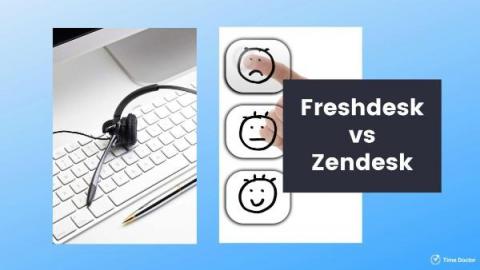10 Top-Notch Project Time Tracking Software for 2021
Planning, developing, and executing a project is no cakewalk, especially if your team is working on several projects simultaneously. The solution to this project management dilemma? A great project time tracking software solution! The right project time tracking software lets you track the time spent on projects, calculate project profitability, and improve project workflows. It also helps you analyze and gain insights into your team’s productivity.










